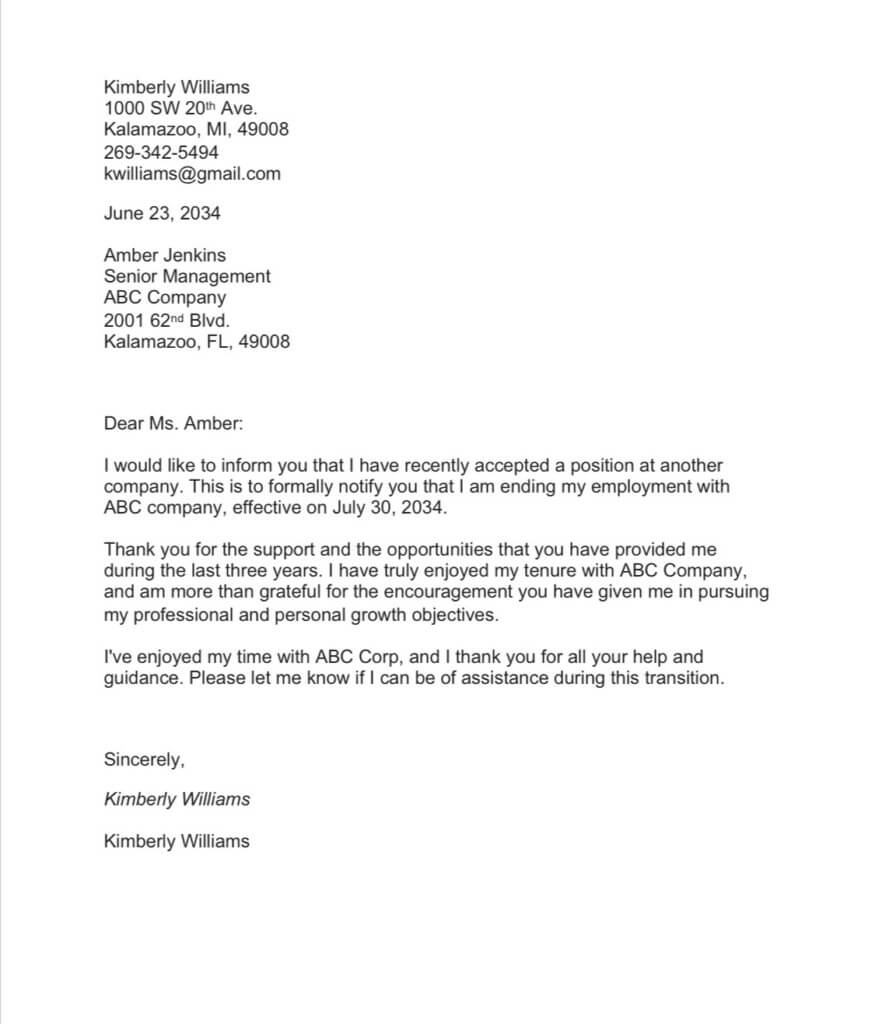Now, I know writing a resignation letter to a no good boss can definitely sound impossible to do. That annoying supervisor at the library that thought your every mistake equaled all-out war on the Dewey Decimal system may take some extra thought on what to say in your resignation letter. Typically when it comes to resignation letters we tend to want to express how we truly feel but in order to leave on a positive note sometimes, we have to distort our true feelings and leave our professional self in written language. Resignation letters can determine the turnouts of future employment, relationships and important connections. Even though you may not realize it now, but leaving your work-study job at the library properly can help you land that job as head editor someday.
Pay close attention to these 10 things to avoid in your resignation letter to help you make your leave the right way.
1. Rude Comments Against your Supervisor or the Company

I know that leaving your job means not having to deal with those crappy human beings called supervisors. But even though you may not have to deal with them face to face that doesn’t necessarily mean you won’t have to deal with them in the future. Make sure that your resignation letter doesn’t include anything that can come off offensive to your supervisor or the company. Hold your tongue and edit out all those rude comments. You can save those for venting to your BFF. Hey, even say a white lie if you have to: “It was a pleasure working with you Edna.” You wouldn’t want to end off with a bad note with your supervisor and end up needing them for future potential jobs. Almost always when applying for a job they ask for past employers information so they can contact them. If you offend your supervisor they might just rant on how bad of an employee you were.
2. Improper Language

Never get too comfortable and feel safe to use improper language when writing a resignation letter. You were a professional before you got the job and you will remain one when you leave. Even if you and your boss developed a casual friendship, still write your letter as though you will be giving it to the dean of your college. Make sure you understand the difference in how to act in a work relationship. Always use your work relationship attitude when writing resignation letters. So no,
“Hey girl, I got a new job, so I’ll have to put in my two weeks’ notice. I’ll be out of here June 23, 2070.”
Instead be a professional and use,
“Dear Amber,
Please, accept this letter as notice of my resignation from my position as secretary. My last day will be June 23, 2070.”
3. Negative Tone of Voice

In leaving, you always want to leave known as the person with good vibes. Never leave negative. When writing your resignation letter make sure that you don’t have a negative tone of voice. Stay away from bitter or untasteful remarks. Using negative words like unfortunately, perhaps, not, and may throw your reader off. Always close off with a positive tone. “Give a simple explanation as to why you are leaving and then end off with signatures like kind regards or best wishes,” Crills Cleaning Service employee Markeosha Blakely said.
4. Grammatical Errors

“He’s making a list. And checking it twice. Gonna find out who’s naughty or nice”.
Sound familiar? Yep, even jolly ole Saint Nick understands the importance of checking twice. When writing a resignation letter, you want to ensure that you have your grammar and punctuation on point. Not so good on that end? That’s alright—instead of checking it twice you may have to check it a third time just to be sure. Correcting your “their and there” sentences will save you a lot of embarrassment.
5. Your New Job’s Salary

Make that money, baby, don’t let that money make you. Yes, you should feel proud in your new financial achievement, but that doesn’t mean everyone needs to know about it. This includes your boss and coworkers. Be proud of this new come up, but don’t make others feel insecure in their job by bragging about yours. You never know what future situations you will encounter. Yeah, you brag about this job’s pay one day and then the next you find yourself needing the person you thought was beneath you. Don’t have Adele’s song, “Tables Turn,” count as your next life’s theme song.
6. Wordy Paragraphs

Nobody got time for reading a 10-page resignation letter that looks like a research paper. Who wants to write those anyway? Understand that you have to provide thorough information in your letter, but you do not have to write like Dickens. Remember when your professor lectured on using concise techniques in your essays? Well, that still applies to your resignation letters. “You should start off a resignation letter by thanking the employer for the opportunity. Then you should let them know why it is you are resigning, very vaguely though, you do not need to go into detail unless you want to or feel the need to. Lastly, you want to thank them again for taking the time to consider you and seeing that you were a good fit for the position because it is very motivating to know that a company as good as theirs believes you’re a good fit for them,” UF Career Resource Center Warren Miles employee said.
7. Jokes

When doing anything always ask yourself, “Does this seem like the appropriate time to be doing this?” Asking yourself this question will help you to understand the importance of timing—jokes included. You should not throw in jokes into your resignation letter. No matter the status of your relationship you have to remember that resignation letters are sent to higher authorities. Those scary people do not care to hear a knock-knock joke in your letter. You should not be writing:
Knock Knock
Who’s There?
Not me!
As an intro to your resignation letter. Act mature and respectful at the same time. Take this seriously and know that resignation letter says a lot about an individual’s character. If you write jokes throughout your letter what does that have to say about you and your work ethic?
8. Overbearing Emotions

We all have that emotional side—trust me, I use mine a little too much. Like jokes, that emotional side has its own time to shine. However, you may not want to write your boss a whole sad sob story as a resignation letter. This may sound a little ruthless, but they just don’t care to hear all that. Sure, emotions should definitely pop up every now and again in your letter. Express your sincerest gratitude in working with them. “It was a true honor serving as your secretary. I am now confident to say that I am a better professional and individual because of this experience.” Comments like this will make your boss happy to hear such feedback but don’t overdo it.
9. Too little information

Ever wanted to hear that tea and then you got mad because your friend wasn’t spilling everything? Right, just aggy! Well, this applies to resignation letters as well. You want to make sure that you structure your letter in a way where you have an equal amount of information presented and you ensure that they understand your current situation without having run on sentences like this one right now. See, that was annoying to read. Your boss would feel the same way. Use concision, but make sure that you throw in the good stuff so they know everything they need to know. “It can be as vague as you’d like. It really depends on your employer and your relationship with them. All that is really required is your last day of employment. But, if you’ve given extended time to a particular place, you should definitely talk about how the time there has impacted your growth. This goes for work or school,” K-5 Literacy Instructional Coach Dionna Roberts said.
10. Criticism of Any Co-workers

Coworkers sometimes can act as a pain in the rear end (you know the real word I wanted to use). However, we can’t express this frustration in a resignation letter. First, a boss does not care to hear about your feelings towards another coworker since you no longer will work there. And second, this will only show that your timidity. Why get bold now and start ranting? This just becomes annoying and extremely unprofessional. Save all that drama for MTV.
Take a look below at an example of what a good resignation letter looks like.




















